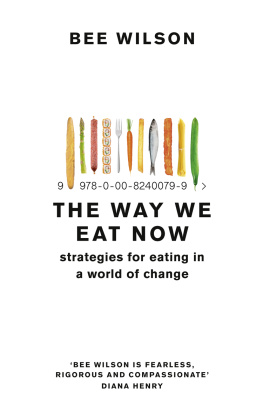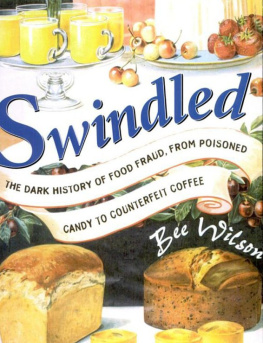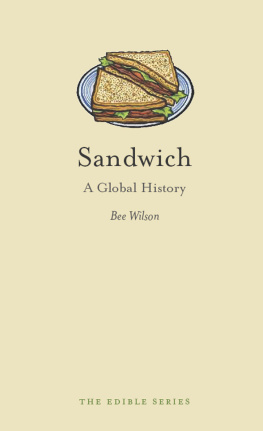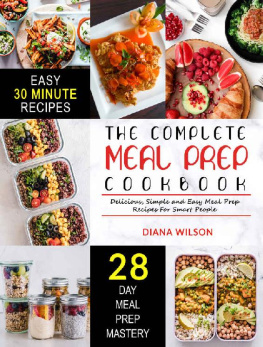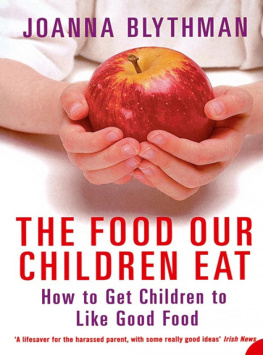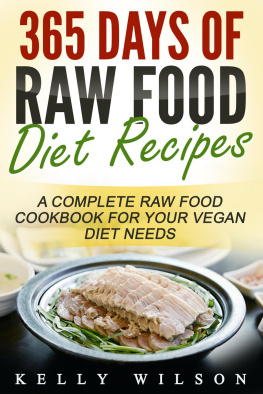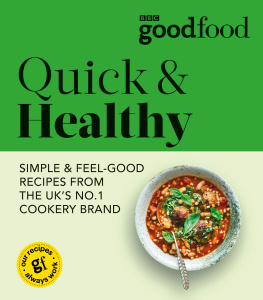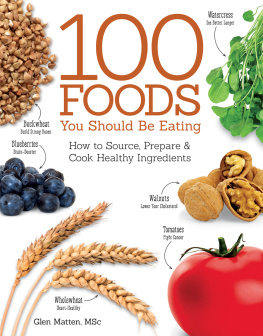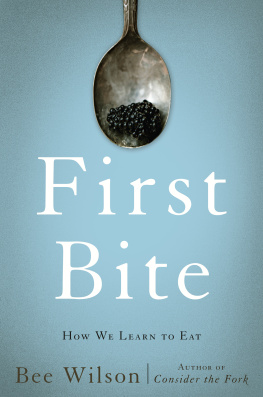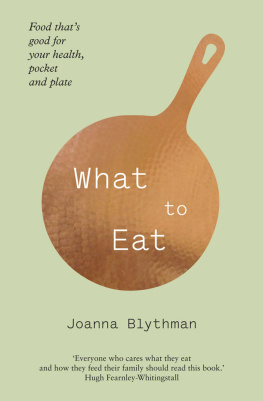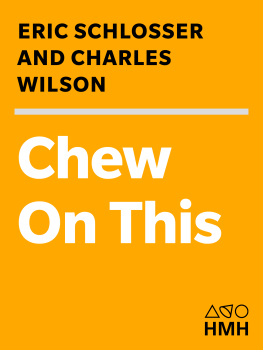Contents

Australia
HarperCollins Publishers (Australia) Pty. Ltd.
Level 13, 201 Elizabeth Street
Sydney, NSW 2000, Australia
http://www.harpercollins.com.au
Canada
HarperCollins Canada
Bay Adelaide Centre, East Tower
22 Adelaide Street West, 41st Floor
Toronto, ON, M5H 4E3, Canada
http://www.harpercollins.ca
India
HarperCollins India
A 75, Sector 57
Noida, Uttar Pradesh 201 301, India
http://www.harpercollins.co.in
New Zealand
HarperCollins Publishers (New Zealand) Limited
P.O. Box 1
Auckland, New Zealand
http://www.harpercollins.co.nz
United Kingdom
HarperCollins Publishers Ltd.
1 London Bridge Street
London, SE1 9GF
http://www.harpercollins.co.uk
United States
HarperCollins Publishers Inc.
195 Broadway
New York, NY 10007
http://www.harpercollins.com
This book is the product of countless conversations with many people in different countries who were generous enough to talk to me about the way that they eat. If I have failed to thank some of you by name, I apologise.
My greatest debt is to the many scholars in different fields who have devoted their lives to studying the ways that our eating has changed, and how it has affected human health. Much of the book was inspired by reading the work of Barry Popkin and learning about the nutrition transition. If you are interested in reading in more detail about nutrition around the world, I urge you to seek out some of his many, many papers (a small fraction of which are listed in the bibliography).
I benefited from meetings and interviews with numerous experts in different fields. Id like to thank in particular Hector Abad Faciolince, Lisa Abend, Graeme Arendse, Yemisi Aribisala, Carol Black, Sasha Correa, Prajna Desai, Vikram Doctor, Lynn Dornblaser, Patrick Drake, Chris Elliott, Stuart Flint, Trine Hahnemann, Kerry Hart, Corinna Hawkes, Julian Hearn, Olia Hercules, Fumiaki Imamura, Kathleen Kerridge, Colin Khoury, Michael Krondl, Antoine Lewis, Renee McGregor, Michael Marmot, Theresa Marteau, Chiara Messineo, Jason ORourke, Barry Popkin, Rebecca Puhl at the Rudd Center, Anne Marie Rafferty, Nanna Rgnvaldardttir, Nilanjana Roy, Alex Rushmer, Joanne Slavin, Zack Szreter, Enrico Vignoli, Dan Wang, Alan Warde and Eddie Yoon.
Several sections of the book are based on pieces of journalism that first appeared elsewhere. Many thanks to the editors and publications for permission to reproduce these. The section on eating for wellness in Chapter 7 is partly based on Why we fell for clean eating, Guardian, 11 August 2017 (with thanks to the editors Clare Longrigg and Jonathan Shainin). Some of my thoughts on meal replacements first appeared in Food of the future, Tank magazine, Autumn 2016 (with thanks to editor Thomas Roueche). Part of the section on the history of bread in Chapter 3 is based on an essay I wrote for London Essays, No more daily bread, 21 June 2016. Some of what I write about Prajna Desais Mumbai cooking project in Chapter 8 first appeared in the Observer in an article called Social media and the great recipe explosion, 18 June 2017, with thanks to editors Gareth Grundy and Allan Jenkins.
My thinking on food has been refined and changed by numerous conversations with friends, colleagues and family including Catherine Blyth, Caroline Boileau, Sheila Dillon, Miranda Doyle, Rosalind Dunn, Sophie Hannah, Lucie Johnstone, Ingrid Kopp, Henrietta Lake, Annabel Lee, Ranjita Lohan, Peter McManus, Anne Malcolm, Elfreda Pownall, Sarah Ray, Cathy Runciman, Lisa Runciman, Ruth Runciman, Garry Runciman, Natasha Runciman, Andy Saunders, Abby Scott, Ruth Scurr, Sylvana Tomaselli, Andrew Wilson and Emma Woolf. Thank you, too, to my dear friends and colleagues at TastEd and Sapere International including Jason ORourke, Stina Algotson and Einar Risvik and to the children and teachers of St Matthews Primary School.
Because of the breadth of the subject matter, I dont think any book Ive written before has had such an interesting journey from concept to final text, and Im hugely grateful to the guidance and support of my publishers on both sides of the Atlantic for shaping my ideas and words along the way. No one could wish for two more intelligent editors than Lara Heimert at Basic Books and Louise Haines at Fourth Estate. Also at Fourth Estate, Id like to thank Sarah Thickett, Patrick Hargadon and Julian Humphries among others, as well as Steve Gove for his great copy-editing and Morag Lyall for her proofreading. Im grateful to the whole team at Basic Books, including Katie Lambright, Kelsey Odorszyck, Liz Wetzel, Issie Ivens, Nancy Sheppard, Allie Finkel. Thank you to the wonderfully talented Annabel Lee for drawing illustrations of wine glasses and foods, from instant noodles to kale.
I am tremendously fortunate to have two brilliant agents. For support and guidance of so many kinds, huge thanks to Zoe Pagnamenta in New York and Sarah Ballard at United Agents in London. Also at United Agents, Id like to thank Eli Keren, for his wisdom, good cheer and support.
For reading some or all of the manuscript and telling me how to improve it, Im especially grateful to Eli Keren, Caro Boileau, Tom Runciman, David Runciman and Emily Wilson.
Needless to say, all the mistakes are mine.
Abend, Lisa (2013), Dan Barber. King of kale. TIME, 18 November
Adair, Linda S. and Popkin, Barry (2012), Are child eating patterns being transformed globally? Obesity Research 13: 128199
Adams, Jean and White, Martin (2015), Prevalence and socio-demographic correlates of time spent cooking by adults in the 2005 UK Time Use Survey. Appetite 92: 18591
Anonymous (1954), Now comes quinoa: its a substitute for spinach, dear children all. New York Times, 7 March
Anonymous (2017), Should we officially recognise obesity as a disease? Editorial, The Lancet Diabetes and Endocrinology 5: 7 June
Aribisala,Yemisi (2016), Longthroat Memoirs: Soups, Sex and Nigerian Taste Buds. London: Cassava Republic Press
Aribisala, Yemisi (2017), We Make Our Own Food, Chimurenga Chronic, April
Ascione, Elisa (2014), Mamma and the totemic robot: towards an anthropology of Bimby food processors in Italy, in Food and Material Culture: Proceedings of the Oxford Symposium on Food and Cookery
Bagni, U.V., Luis, R.R. et al. (2013), Overweight is associated with low haemoglobin levels in adolescent girls. Obesity Research and Clinical Practice 7: e218e229
Bahadoran, Zahra, Mirmiran, Parvin et al. (2015), Fast food pattern and cardiometabolic disorders: a review of current studies. Health Promotion Perspectives 5: 23140
Barber, Dan (2014), The Third Plate: Field Notes on the Future of Food. New York: Little, Brown
Basu, Tanya (2016), How recipe videos colonised your Facebook feed. New Yorker, 18 May
Becker, Gary (1965), A theory of the allocation of time. Economic Journal 75: 493517
Biggs, Joanna (2013), Short cuts. London Review of Books, 5 December
Bloodworth, James (2018), Hired: Six Months Undercover in Low-Wage Britain. London: Atlantic
Bodzin, Steve (2014), Label it: Chile battles obesity.
Next page
